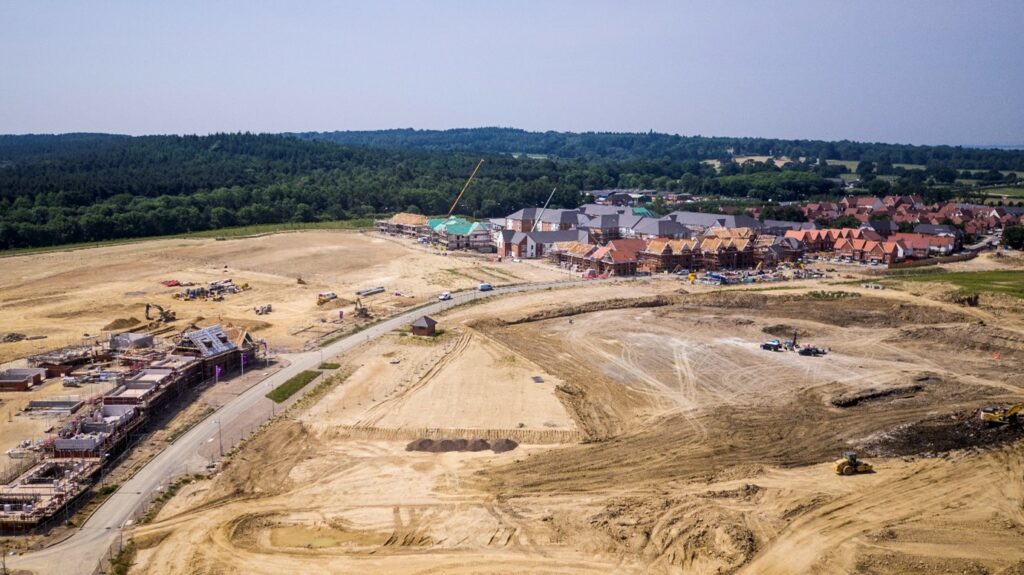Climate change is intensifying geohazards across the UK, with shrink-swell action and landslides becoming increasingly frequent and severe. These ground movements pose significant risks to infrastructure and contribute to substantial economic losses; shrink-swell damage alone costs the UK economy over £400 million annually [1] and is predicted to rise as these extreme weather events become increasingly common.
Data analysis by the British Geological Survey (BGS) highlights that during the exceptionally wet period in 2012, there was a noticeable rise in reported landslides. Similarly, following the dry summer of 2018, the Association of British Insurers reported a 350% surge in subsidence claims between July and September, the highest increase on record. These examples highlight the connection between climate volatility and increased impacts of geohazards to structures across the UK.
At CampbellReith, our geotechnical team is committed to addressing these challenges through sustainable and resilient engineering solutions. The Bristol office recently led the stabilisation of a commercial unit at Cribbs Causeway affected by slope movement. Working together our geotechnical and structural teams implemented a soil nail solution to secure the slope and designed repairs for the damaged structure. This approach prevented the need for demolition and instead extended the building’s design life.
Redevelopment of a Dover Grammar School for Boys in Kent on a steep site involved dealing with a significant level change. This led to a large retaining structure being required. Instead of sending demolition waste to landfill, we incorporated the processing and reuse of the materials from the old buildings into the design for a geogrid-reinforced wall. This circular approach reduced environmental impact and embodied carbon, while delivering a robust engineering solution.
CampbellReith also has a strong legacy in brownfield redevelopment. A recent example is the successful completion of a major remediation project on a historic landfill site at Kilnwood Vale. To deliver this complex project, our land quality, civil engineering, and geotechnical teams worked collaboratively with the client and contractor. The project’s success was recently recognised by industry professionals, winning the Brownfield Award 2024 “Best Sustainable Brownfield Regeneration Project” and the “Remediation Project of the Year” award at the Sustainability Delivery Summit in June 2025.

We are currently undertaking major residential developments in Bristol and Newcastle, across sites impacted by historical industrial activities, including coal mining and landfill use. At both locations, we have recently completed extensive ground investigations to refine our understanding of existing geohazards and to deliver targeted remediation recommendations to our clients. These efforts are underpinned by a strong commitment to sustainability, ensuring that remediation strategies not only mitigate geotechnical and contamination risks but also promote long-term land reuse, reduce carbon impact, and support the creation of resilient communities.
[1] British Geological Society (2023) Property subsidence assessment: helping to mitigate shrink–swell hazard risk. https://www.bgs.ac.uk/news/property-subsidence-assessment-helping-to-mitigate-shrink-swell-hazard-risk/